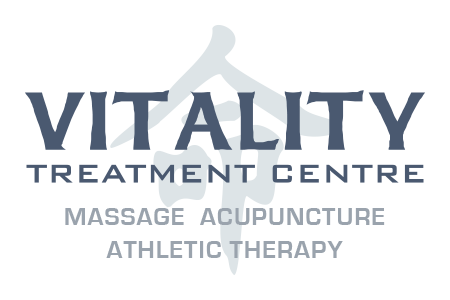a vital part of your health care
Sleep Health & Tips
The Importance Of Sleep
Sleep is vital to replenish energy levels, improve focus and memory, and aid healing. Sleep deprivation has been well documented as a factor in accidents and new research identifies it as a factor in disease.
Top 10 Sleep Tips
Re-Train Yourself to Sleep
Some tips from the West Park Healthcare Centre Sleep Lab, Toronto:
- Figure out how much sleep you need to feel well rested. Although the average is 7-9 hours per night, you may need more or less. Determine how many hours you sleep naturally, when you don't use an alarm clock (e.g. on the weekend) and awake feeling fully rested.
- Be consistent about sleep and wake times. Go to bed and get up at the same time every day if you can — even on the weekends. If you do nap, take one regularly or not at all.
- Avoid caffeine, nicotine and alcohol in general, but especially in the hours before bedtime. Caffeine can still affect you within eight hours of bedtime. And don't use alcohol as a sedative. While it may help you get to sleep, it won't help you stay asleep, affecting the quality of your slumber.
- Get outdoors! Get some natural light each day to help with the circadian rhythm.
- Exercise regularly. Just avoid strenuous activity late in the evening.
- Avoid heavy meals before bed. If you have to eat, make it a light snack.
- Schedule a relaxing unwind downtime prior to bedtime. Dim the lights (use lavender aromatherapy candles instead), read a pleasurable book, soak in a warm bath, listen to soft music, or meditate. This signals to your brain it is time to wind down for the day.
- Turn off blue-light screens/devices (TVs, tablets, cell phones) at least an hour before sleep. Blue light is shown to interfere with melatonin production.
- Use your bedroom primarily for sleep (not for watching television or doing work) to teach your brain to associate laying in bed with sleeping, not thinking. If you can't fall asleep within 10 minutes, get out of bed, but do something relaxing, such as reading, colouring, meditating or playing an acoustic instrument. Return to bed once groggy again and repeat as many times as necessary in any given night. Paradoxical at first, this will train your brain over time to more readily enter sleep mode rather than thinking mode when you lay down.
- Make sure your bed is comfortable, the room is dark and quiet, and the is temperature suitable for you.
The Importance of Sleep
Sleep is vital to replenish Yin. It is not merely rest in terms of cessation of activity, it is a different form of being. It is an entry into the world of Yin, which nourishes feeling and intuition. The daytime world is the Yang domain of physical activity and the analytical mind.
One of the main causes of insomnia is nervous tension, anxiety, worry, and the projection of these daytime stresses into the world of sleep. It is not simply a matter of turning off the rational mind at the end of the day, it is also necessary to nourish and develop the intuitive mind and the realm of imagination and feelings.
It is difficult for most people not to carry their daytime mental activity into the world of sleep. This creates a great imbalance between Yin and Yang, with Yang increased and Yin greatly reduced. During an Acupressure session, specific points are held to re-balance Yin and Yang.
(Adapted from The Practice of Chinese Medicine by Giovanni Maciocia, p. 281-303)
Insomnia
What is Insomnia?
The term "insomnia" covers a number of different problems such as inability to fall asleep easily, waking up during the night, sleeping restlessly, waking up early in the morning and dream-disturbed sleep. Infrequent insomnia can be caused by external or temporary causes, such as a sudden change in the weather, drinking a lot of tea or coffee, an emotional upset or worry. Once the cause is removed, the person usually sleeps well again.
For chronic insomnia, Traditional Chinese Medicine (TCM) differentiates and develops specific acupuncture treatments to alleviate the symptoms and underlying causes. The following are some of the manifestations of insomnia which acupressure can address:
- Restless sleep; tossing and turning, unpleasant dreams
- Waking up during the night, mental restlessness, cannot lie down or sit
- Waking up during the night, dreaming a lot, often with nightmares, talking in one's sleep
- Difficulty falling asleep, palpitations, tiredness, poor appetite
- Waking up very early in the morning and being unable to fall asleep again, light sleep, dreaming a lot
- Difficulty in falling asleep, waking up during the night
A note about dreaming: "Excessive" dreaming may be defined as dreaming which causes restless sleep or nightmares, resulting in the person feeling very tired the following morning. Dreaming which does not make sleep restless, is not frightening, does not disturb the mind the morning after, and does not leave the person very tired in the morning, can be described as normal.
Sleep Resources
Psychology Today: 3 Tips to Give Your Brain the Sleep It Needs
New research shows sleep deprivation may increase the risk of Alzheimer's
Sep 11, 2017 by Michelle Braun Ph.D., ABPP-CN
CBC News: Having your phone next to the bed might save you from a tsunami, but should you sacrifice your sleep?
Sleep experts warn of long-term health effects of sleeping next to your smartphone
Jan 28, 2018 by Michelle Ghoussoub
- National Sleep Foundation, Washington, DC
- Canadian Sleep Society, School of Psychology, Laval University
- Tuck: Advancing Better Sleep
